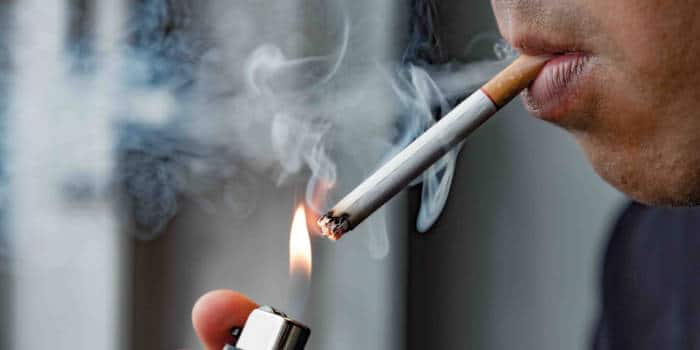Smoking on casino floors has become an increasingly important public issue with a growing number of people now favoring a ban on Rhode Island’s casino floors


The year 2025 is expected to be one of the best ones for anti-smoking advocates. With a public exemption to smoke on casino floors, even though 85% of patrons are non-smokers, increasingly under attack in Rhode Island, as well as Pennsylvania, New Jersey and elsewhere, and casinos opting into non-smoking options voluntarily, the end of smoking mandates at The Ocean State’s gaming floors seems all but certain.
Ending Smoking in Rhode Islands’ Casinos Again on the Agenda
A new study by the Rhode Island AFL-CIO released on Monday and conducted by Fleming and Associates shows that the majority of people – be that Republicans or Democrats, unionized workers or non-union members, seem to be in favor of ending this exemption.
The survey reached out to 400 state-registered voters by phone to collect the latest results. The results found that 7 out of 10 survey respondents either supported ending smoking on casino floors outright or felt “somewhat” in favor of doing so.
The two state casinos, Bally’s Twin River Lincoln and Bally’s Tiverton Casino and Hotel, operate in a fairly small market and similar to concerns expressed by casinos in Atlantic City, New Jersey, they have feared a potential outflow of smokers unhappy with the fact that they can no longer light up on the gaming floor.
Momentum continues to build against smoking, nevertheless. Rhode Island AFL-CIO president Pat Crowley is confident that the time is ripe to make a change:
Especially given the Senate president’s leadership style: He understands that when there are issues he may personally disagree with, but are popular, sometimes those issues deserve a vote.
Rhode Island AFL-CIO Pat Crowley
Morally Robust, Economically Fearful
A pair of companion bills were already introduced in the Senate and House by South Kingston Democrats V. Susan Sosnowski and Teresa Tanzi in February signaling that there is legislative momentum for helping to snuff out smoke on the two casino’s gaming floors, but the issue is so contentious that even fellow party members are split on what to do next.
Although most seem cognizant of the fact that second-hand smoke is harming the health of casino workers and is detrimental, not too many are readily willing to push for a change that could sap the casinos’ financial stability and potentially threaten job loss.
The evidence of this happening is thin, although New Jersey casinos have been sounding the alarm over this potential outcome. In other states, such as Pennsylvania, casinos have reported increased customer satisfaction instead.
